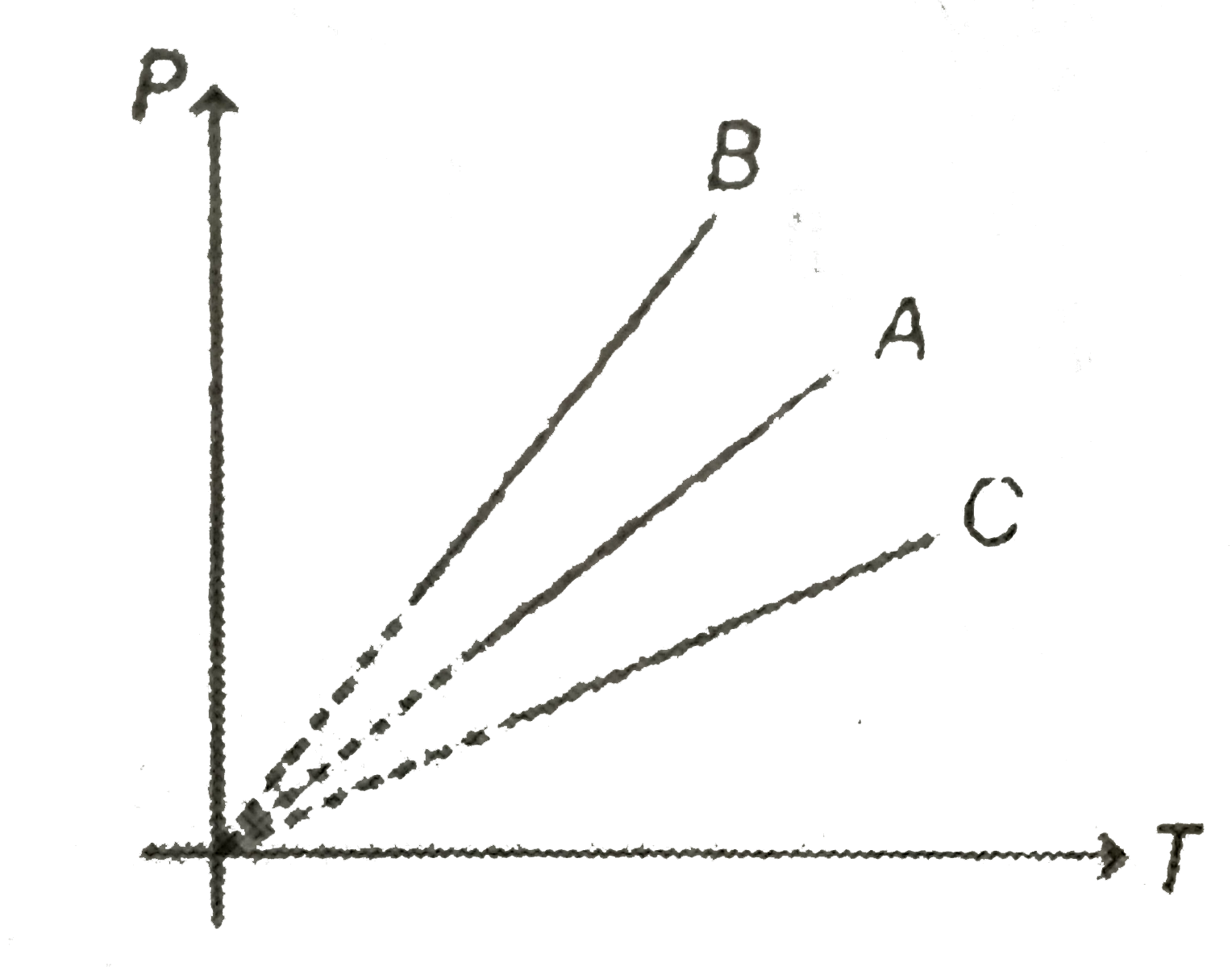If pressure and temperature of an ideal gas are doubled and volume is halved, the number of molecules of the gas
A) remain constant
B) become half
C) become two times
D) become four times
The correct Answer is:B
To solve the problem, we will use the Ideal Gas Law, which is given by the equation:
PV=nRT
Where:
- P = Pressure
- V = Volume
- n = Number of moles (or number of molecules)
- R = Ideal gas constant
- T = Temperature
1. Write the Initial Ideal Gas Equation:
P1V1=n1RT1
Here, P1, V1, n1, and T1 are the initial pressure, volume, number of molecules, and temperature respectively.
2. Apply the Changes to Pressure, Volume, and Temperature:
According to the problem:
- Pressure is doubled: P2=2P1
- Volume is halved: V2=12V1
- Temperature is doubled: T2=2T1
3. Write the New Ideal Gas Equation:
P2V2=n2RT2
Substituting the changes:
(2P1)(12V1)=n2R(2T1)
4. Simplify the New Equation:
P1V1=n2R(2T1)
Now, we can equate this with the initial equation:
n1RT1=n2R(2T1)
5. Cancel Out Common Terms:
Since R and T1 are common in both sides, we can cancel them:
n1=2n2
6. Solve for the New Number of Molecules:
Rearranging gives:
n2=n12
This means the number of molecules n2 becomes half of the initial number of molecules n1.
Conclusion:
The number of molecules of the gas becomes half when the pressure and temperature are doubled, and the volume is halved. Therefore, the correct answer is option B: the number of molecules becomes half.
---
- P = Pressure
- V = Volume
- n = Number of moles (or number of molecules)
- R = Ideal gas constant
- T = Temperature
P1V1=n1RT1
Here, P1, V1, n1, and T1 are the initial pressure, volume, number of molecules, and temperature respectively.
According to the problem:
- Pressure is doubled: P2=2P1
- Volume is halved: V2=12V1
- Temperature is doubled: T2=2T1
P2V2=n2RT2
Substituting the changes:
(2P1)(12V1)=n2R(2T1)
P1V1=n2R(2T1)
Now, we can equate this with the initial equation:
n1RT1=n2R(2T1)
Since R and T1 are common in both sides, we can cancel them:
n1=2n2
Rearranging gives:
n2=n12
This means the number of molecules n2 becomes half of the initial number of molecules n1.
The number of molecules of the gas becomes half when the pressure and temperature are doubled, and the volume is halved. Therefore, the correct answer is option B: the number of molecules becomes half.
Topper's Solved these Questions
Similar Questions
The molecule of a given mas of gas have r.m.s. speed 200ms−1 at 27∘C and 105Nm−2 pressure. When the absolute temperature is doubled and the pressure is halved, then find rms speed of the molecules of the same gas.
View SolutionIf pressure of an ideal gas is doubled and volume is halved, then its internal energy will remain unchanged.
Internal energy of an ideal gas is a function of only temperature.
View SolutionThe pressure of temperature of 4dm3 of carbon dioxide gas are doubled. Then the volume of carbon dioxide gas would be
View SolutionIf both the temperature and the volume of an ideal gas are doubled, the pressure
View SolutionPressure versus temperature graph of an ideal gas at constant volume V is shown by the straight line A. Now mass of the gas is doubled and the volume is halved, then the corresponding pressure versus temperature graph will be shown by the line

View SolutionA sample of gas in a box is at pressure P0 and temperature T0. If number of molecules is doubled and total kinetic energy of the gas is kept constant, then final temperature and pressure will be
View SolutionA gas enclosed in a vessel has pressure P, volume V and absolute temperature T, write the formula for number of molecule N of the gas.
View SolutionA : Number of air molecules in a room in winter is more than the number of molecules in the same room in summer.
R : At a given pressure and volume, the number of molecules of a given mass of a gas is directly proportional to the absolute temperature.
View SolutionThe pressure P, Volume V and temperature T of a gas in the jar A and the other gas in the jar B at pressure 2P, volume V/4 and temperature 2T, then the ratio of the number of molecules in the jar A and B will be
View SolutionExplain what will happen when the temperature of gas is doubled and pressure is raised 4 times . What will be the effect on the volume of the gas.
View Solution